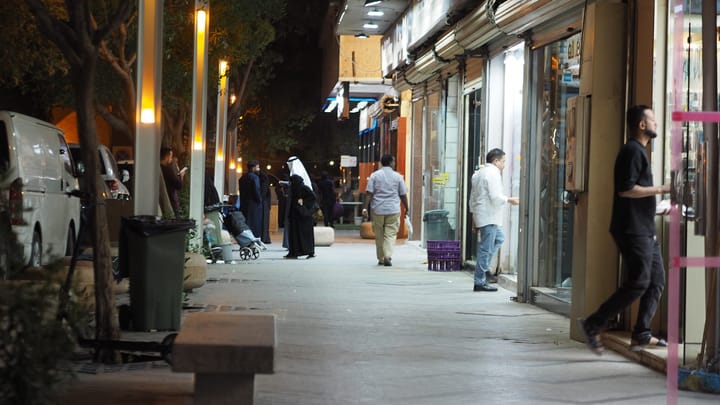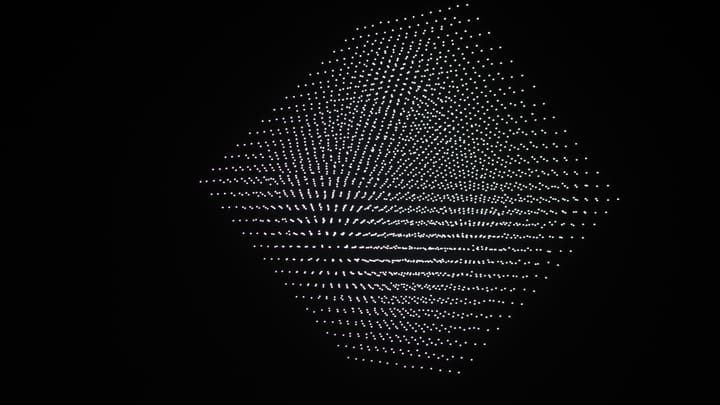Minus workshop 6, part 2: the power of being affected

is the power of affect more than that of affecting and being an agent of affect causing it. This I was thinking on my way to the workshop at Ellen Melville Centre. The thought grew from the perspective of David Lapoujade, in his small book Powers of Time, 2018 translated by Andrew Goffey, on Bergson. He maintains a correspondence between emotion and duration; duration is accessible to us through emotion.
Emotion retains for him being a movement but loses the association Bergson in Matter and Memory makes primary when he says if an action, necessarily of perception and of the outside, does not have already an inner association, if it does not come with it already, it is unlikely ever to develop. Bergson gives the example of a pin and the action of the nerves which produces the inner association of a stinging pain with the pinprick. After the association has formed comes a world of knowledge, that of emotional associations, including corresponding sensations of pain but also different meanings, which, at the extremity, have the pain bring a different sensation altogether, like excitement—the world hinges on the meaning in overturning direct pain into pleasurable excitement.
The power to be affected then is a power to enter into a world of knowledge, of finding out the associations and of producing from the outside—on the stage, in the broadest sense of an experimental zone, a laboratory for the imagination—new associations. However Bergson says ... if the action does not open already onto a world of associations ... it is unlikely ever to develop them; but our form of theatre is not based on the individual it is led by the individual, into a world of associations that are theirs: thief means taking from someone what is really theirs and bringing the world out that is in that gesture which is stolen.
thief means taking from someone what is really theirs and bringing the world out that is in that gesture which is stolen
The power to be affected is that of being sensitive, because sensitised, which is what the practice is all about, to the affects of the gesture. Coming back to this sentiment now, Friday 12 September 2025, I have confirmation of where the next workshop, workshop 7, will be headed—towards the gesture. I will bring to the workshop 7 a new understanding of the gesture, and the role of invention in imagining from out of the worlds of emotion opened up by others new associations, i.e. the fluidity of the stage's working space. (A brief note on which: the notion, in contrast to a world without others, that we create space, construct it, and do so in overlays when we are the community who have nothing in common, Lingis's description. ... which leads in turn to an archeology of knowledge, digging in to the historical construction of human social spaces. [Deleuze – a world without others; Lingis – as attributed; Foucault – archeology of knowledge; and the 'digging in' comes from Walter Benjamin])
Nick introduced himself and Leonard in the foyer of the EMC because he said Chenby and I looked theatrical. A certain backhander, I said. Both are from Hobson Street Theatre and had heard about Minus from Rikki (perhaps he's Ricky! forgive). Antonietta (again, my spelling could be off, sorry) seemed to be looking for something, she had not yet introduced herself. She too, said Nick, theatrical. And so it turned out to be, she was there for Minus too.
Mike, Jeff, Alex, Chen, Ricky (yes, perhaps that's right), Kwan, sitting in the working space already, on the phone, Ann with a friend, Patricia, who although I mistook her for Chinese, was from Singapore, first language English. Ann explained Patricia was there to observe. We participate here, I said. And, it's easy. Her hearing is not so good, said Ann. Talking with Patricia we agreed she would do what she could when she could. She ended up, inseparable from Ann, participating in most things, just not in the life-stories at the end.
The most interesting thing, the problem which arose, came out of Antonietta leading a thief session. It was great. It came after one led by Chenby. Antonietta speaking in Spanish performed a domestic scene with someone who appeared to be her mother, with whom she bickered.
Invited to pick up, steal, the gestures, the group picked up on Antonietta's mood, which was playful, light, had a wonderful, said Jeff afterwards, levity. It was like watching a playground full of kids doing different things in twos and threes. At one point Alex wove the whole thing together by jogging around the action. At another, Antonietta who had been crouched beside Ann and Patricia ran diagonally across the room and hugged Nick. Both danced like kids playing back into the middle. Antonietta said she had not played like that for so long. She felt like a child.
At the end I said we are not playing. I went into the difference between theatre and play by way of play therapy, which didn't really hit the mark of having explanatory value. I said the whole thing couldn't hold itself together at that level, the one introduced by Antonietta's actions. It was not a problem of naturalism, I said. Of course it was, it is. And Antonietta asked what would have made for cohesion in the group.
I answered that attention might have in her actions, care taken to make everything in the imaginary setting real and specific, the cupboards she opened, the room she traversed, where her movements were general. Nick wanted to say that he thought what she did was brilliant. Yes, I said, but. There's the problem.
The next session, led by Chen, Antonietta watched. I sat beside her. I asked her if I had somehow squashed her will to play. No, she said, I just want to observe and see what is different. At the end I asked what she thought was.
It's slower, she said. You mean go slower.
Is that all? I asked.
Yes, I think so, she said.
Perhaps that's all it is, I thought but I said, is that all? because something else emerges from slowing things down and because it wasn't simply to slow things down that everyone on the floor did. It was to hold things up and feel fully and not every action everyone made was slow, not every gesture was. I said that I thought there were some beautiful shapes, these are theatrical images.
They have energy. Due to their energy they metamorphose and change. Did everyone feel that energy? I asked. Were people aware of the shapes?
I asked Leonard because of his newness to this way of working. Yes, he said. I felt it.
Sometimes I ask myself, should I stand here? Or there? Or there? And it's a matter of where I'm standing. I don't have to do anything else, sometimes just standing there, said Mike, is enough.
Leonard said, yes. I saw Nick go down. Leonard bowed and brought down his arms. So I went up, and lifting his head he raised his arms.
It can have dance elements, I said. ... but perhaps it's too slow for dance! So it's the theatrical images it makes. Anyway, this is where dance and theatre do overlap.
I saw some beautiful shapes, said Jeff, who had been observing, and agreed that it was the energy of the whole thing, going from one thing to another. He gave some examples of when people were doing different things which harmonised, from side to side, and front to back.
And I think it's this harmony which can be read to be it's just slower, because things settle. Yet still, there is an energy which is palpable. I don't know if Antonietta felt it.
I didn't know if she did, so I said that what we were practicing is how to perceive it, how to perceive through doing theatre how it works, to feel the images it makes, and how strong they are and to practice recognising when the energy has left the image, to know when to stop.
And I reiterated the thing about dance that dancers call neutral body. You can in this form simply let go. As Mike said, just standing there is sometimes enough. This doesn't mean that you have ceased to be sensitive to what is happening around you. Perhaps in neutral body you are more sensitive than ever.
Then pick up another gesture if the first is not working for you, if you can't embody in it the emotion. Today is Saturday now as I write this, and with the distance between Jo, who is in Riyadh, and I, I thought how can I say space does not exist? space not time does not exist?
Then I thought, isn't space in essence emotion? That is why we have shared space, why distance makes the heart grow fonder. Space emerges as an emotional connection as it does from slowness, the slowness of an interval in which time is suspended.
How funny then for professionals to talk about working in a certain space, like Jess Berentson-Shaw here talking about having worked in the false information space for many years. She used the word space repeatedly in this sense. And if I am right about it being emotion essentially, what is being said is almost the opposite of what is intended.
Do I work in the theatre space? I try and make a working space. And I call it theatre.
If I ask myself what I do and what I am doing not performing in Minus but directing this would be it. I try and make a space where everyone can work. I have called it a stage as well, a working space where you don't have to work, can just stand, or go up because someone else is going down.
As a stage it is suspended, this space, a space also where we do the invisible work as Donnellan calls it, the visible work being that an audience sees, the performance that it attends. How do I feed in to the process of suspending it? Perhaps this is by suspending judgement, but to say so, like saying It's slower, overstates the case as if everyone were effortfully involved in going slower and I was expending effort just to suspend judgement. Even to say, as I have, there's no judgement here, about the space where we are working, seems too much.
Work too, like judgement and slowness, tends to mean in practice the opposite. We are working to make the space a working space. Sometimes it's slow work. Sometimes a judgement appears to be about something it's not and to weigh on it, like Antonietta's playfulness, which she could associate with a more naturalistic style of theatre.
I will be writing something about theatrical naturalism before the next workshop. For now I want to say that Leonard did a wonderful life-story. Like Nick's it was about the discovery of theatre, of performing, because he began as a stunt actor in film.
Patricia didn't want to do hers, so I asked Nick. His like Leonard's used declarative statements as part of its performance. He wasn't speaking so much as saying the world and its distances, between UK and Hong Kong and Aotearoa, into existence.
Our final too-short-a-time was spent putting together an image from The Family of Man. It was a family scene, with a gesticulating mother, an attentive child, and others around a table, icons on the walls, headscarves on the women. Each person could choose who they wanted to be. Yuka chose an icon featuring not so much a religious leader as a political one, a man with a severe look; it was quite chaotic. Chen decided to be the mother without actually going out onto the floor. Contrarian, I said.


